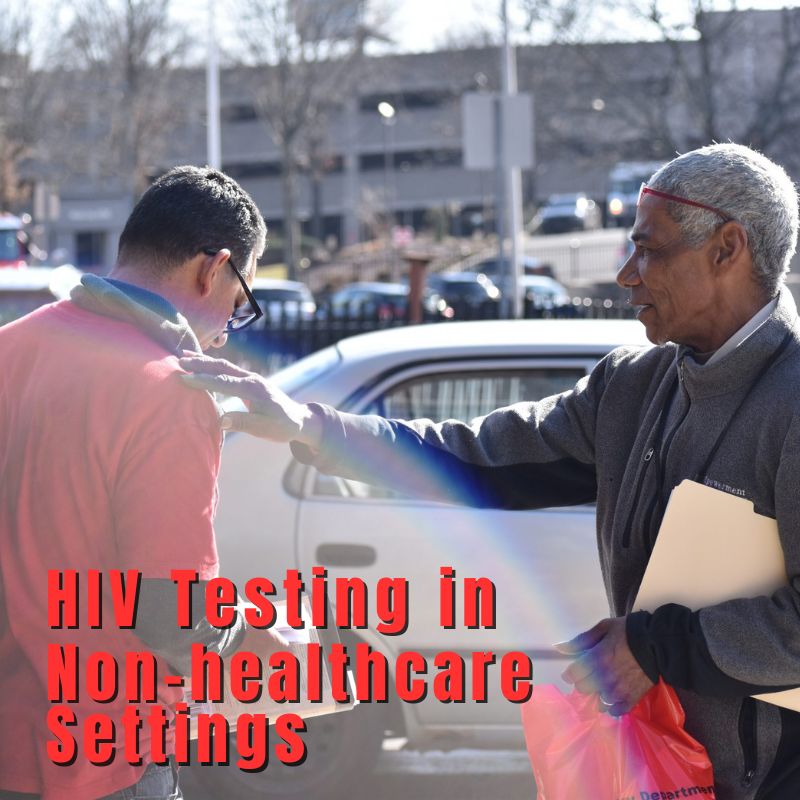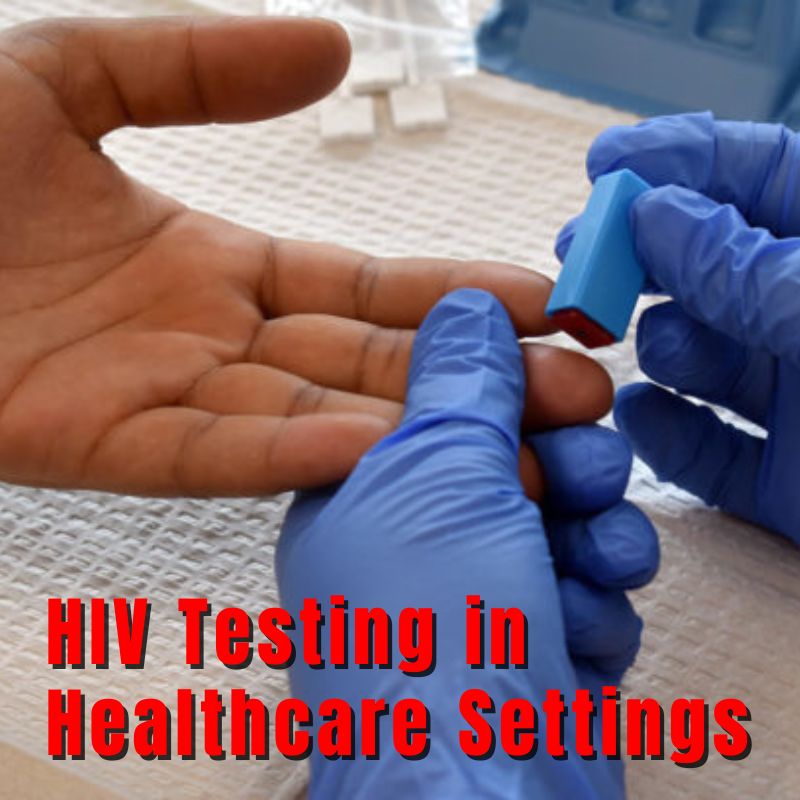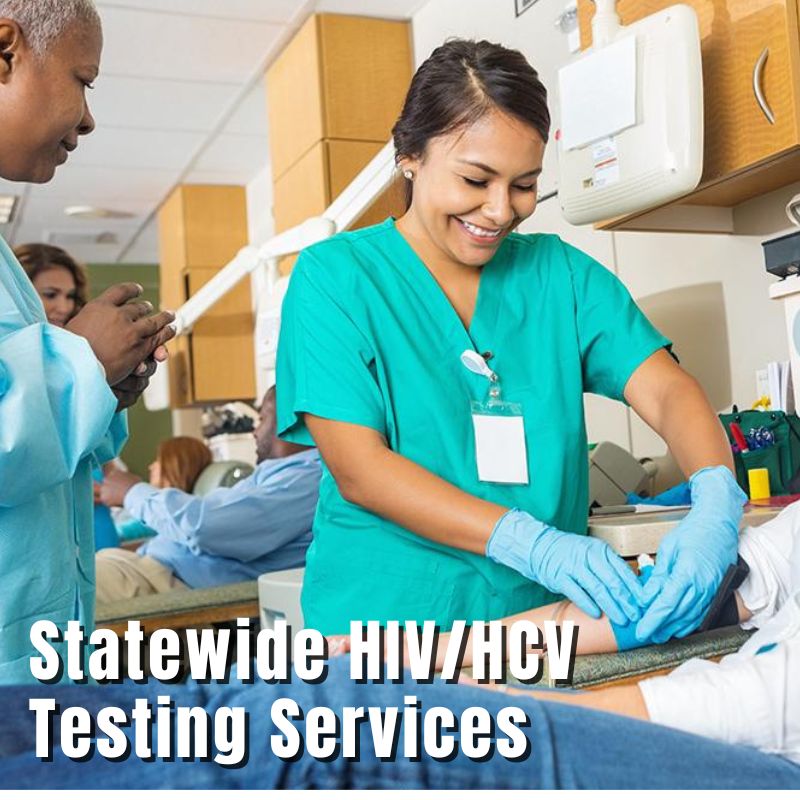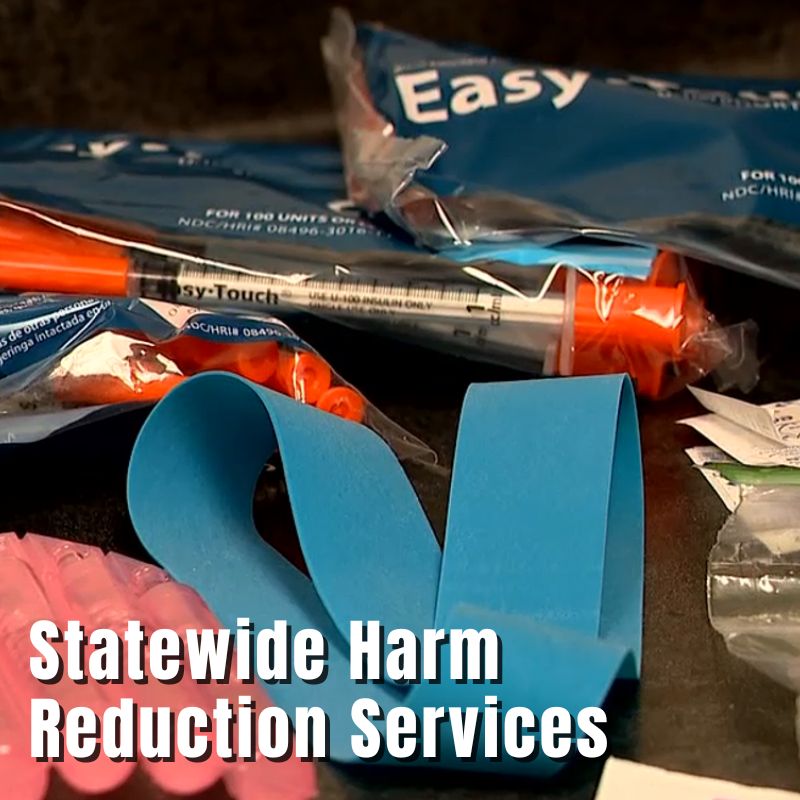HIV testing in non-healthcare settings includes specific outreach, HIV testing, and linkage to other services, such as PrEP Navigation. PrEP Navigation is a process of service delivery to help a person obtain timely, essential, and appropriate PrEP-related medical and social services to optimize his or her health; and prevent HIV transmission and acquisition. In addition, targeted condom distribution to people living with HIV/AIDS and individuals at high risk of contracting HIV is provided.

HIV Testing in Non-healthcare Settings

HIV Testing in Healthcare Settings
HIV testing in healthcare settings is vital for populations with a high prevalence of HIV, facilitating routine screening in community health centers, hospital emergency departments, and outpatient clinics. Additionally, PrEP Navigation is a service delivery process aimed at assisting individuals in accessing timely and essential PrEP-related medical and social services. This approach optimizes their health, mitigates the risk of HIV transmission, and prevents acquisition.

Statewide Routine HIV testing Services
Regular HIV/HCV testing plays a pivotal role in healthcare settings, especially among communities with a high prevalence of HIV. It involves systematic screening in various healthcare facilities like community health centers, hospital emergency departments, and outpatient clinics. Moreover, PrEP Navigation services are designed to aid individuals in accessing crucial PrEP-related medical and social services promptly. This comprehensive approach not only enhances their overall health but also minimizes the risk of HIV transmission and prevents its acquisition, thereby fostering healthier communities.

Statewide Harm Reduction Services
Statewide Syringe Services Programs (SSPs) are instrumental in addressing public health concerns related to injection drug use. These programs operate across entire states, offering a range of services aimed at reducing the transmission of bloodborne diseases such as HIV and HCV. They provide access to sterile syringes, safe disposal of used syringes, and education on harm reduction practices. Additionally, SSPs often offer resources for substance use disorder treatment and referrals to medical and social services. By implementing statewide SSPs, communities can effectively combat the spread of infections, improve health outcomes among people who inject drugs, and promote safer practices within the population.